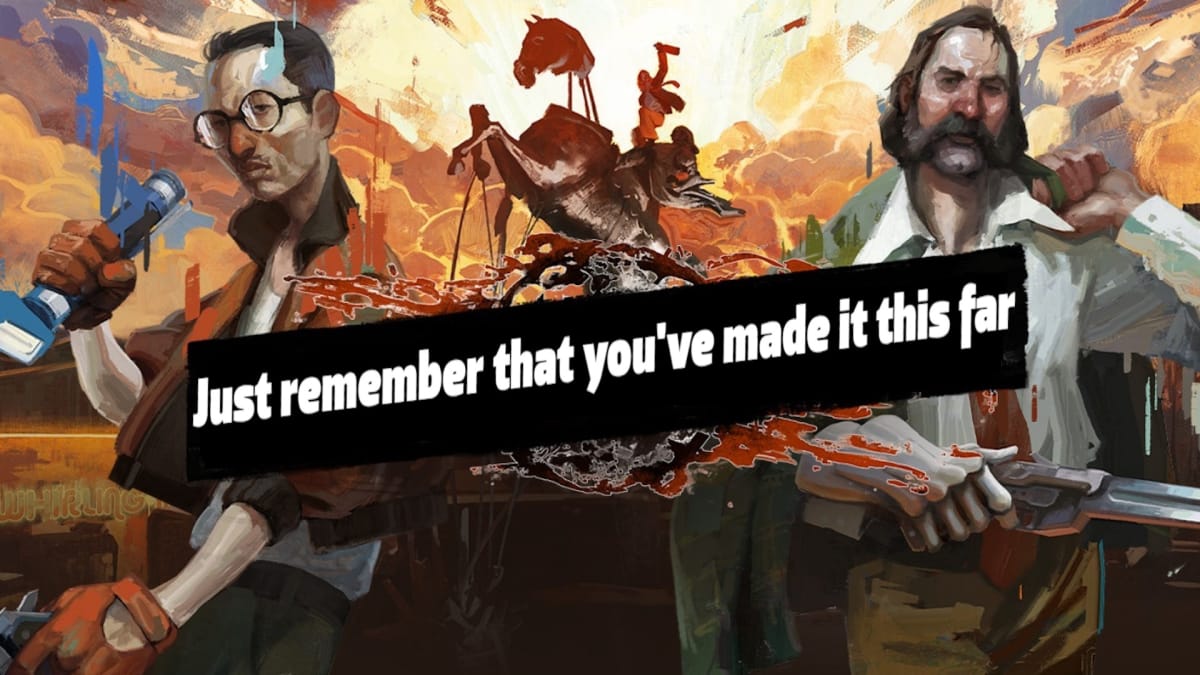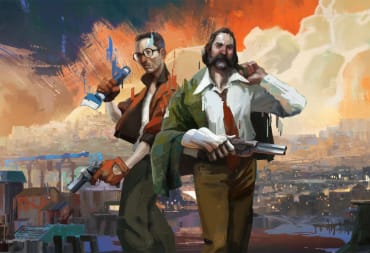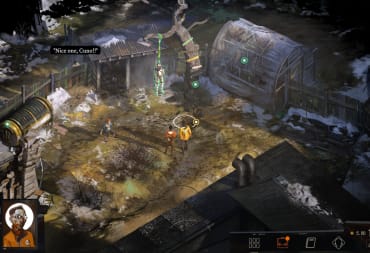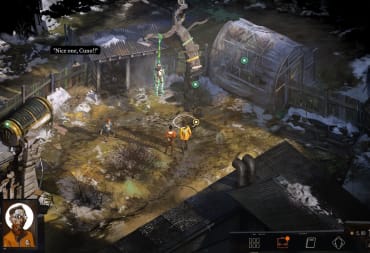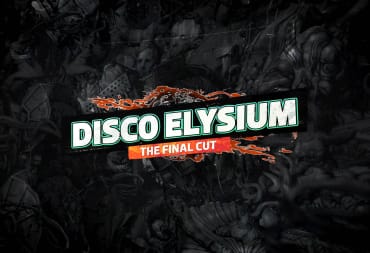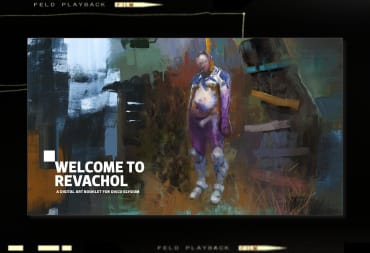Disco Elysium has always been a bit of a strange game. It’s inspired by those old-school tabletop RPGs, but it replaces combat with a more methodical one-shot approach and replaces stats with a strange form of personality test. Instead of upgrading your strength, you increase your empathy, intelligence, and deduction. In line with this, the game is raw and empathetic, humanizing painful rhetoric and inhumane stances. This deep, vibrant humanity at its core is what makes this compassion come through. The world of Elysium is a dark place with hope at its core, and the same can be said for developer ZA/UM itself.
Rhetoric
Helen Hindpere, the ZA/UM head writer, was kind enough to speak to TechRaptor about the process of making art. It’s clear that Hindpere is a bit of a straight talker, and Disco Elysium expresses that well.
“I think it’s important to be transparent because no work of art—and no author—exists in a philosophical vacuum,” she said. “There are always going to be influences—and being clear about them is what opens up the work for truly interesting discussions.”
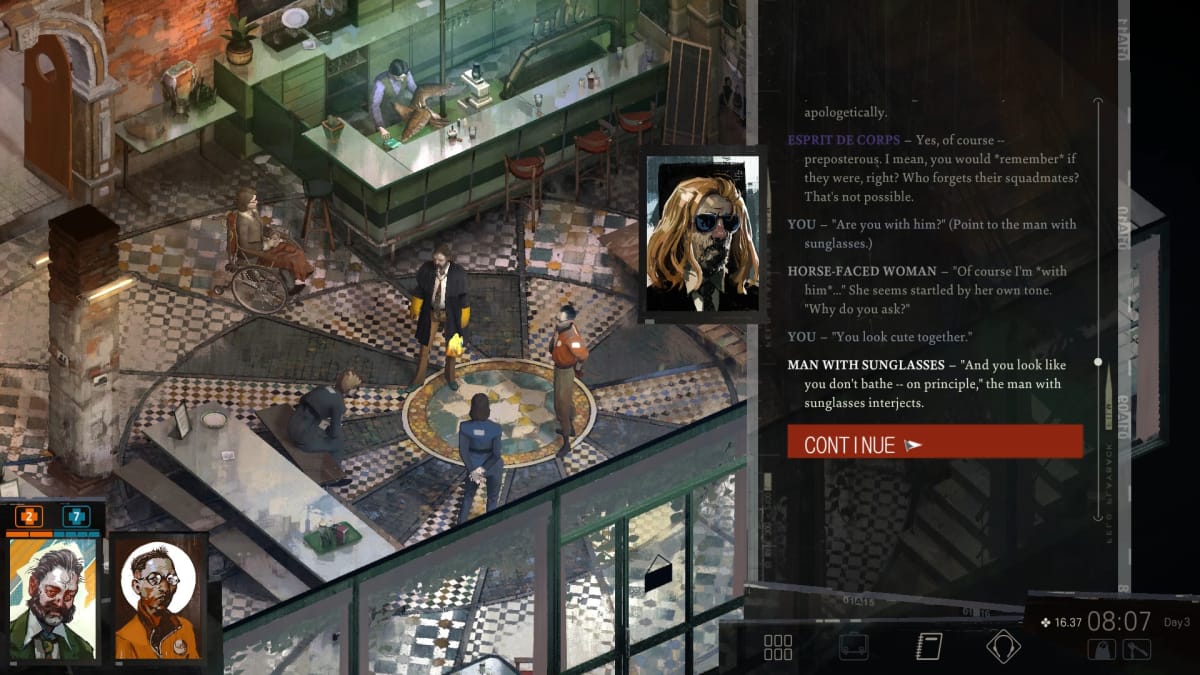
There are political motivations for characters, and they all have their own philosophy, but the team “put hours into making it politically balanced for all four ideologies depicted in the game.” Those four ideologies are Communism, Fascism, Moralism, and Ultraliberalism. Disco Elysium makes fun of all four but also attempts to get to something more personal underneath it. It’s dripping with satire and consistently downplays itself, yet it feels important in its own right. It succinctly deals with historical philosophy and sociology in ways that expand the universe to feel concrete and raw.
Fundamentally, existential nihilism is not always met with personal nihilism, and this is clear from the very first moments. Although Harry is wallowing in his own despair, the world around him breathes and moves—it exists. Kim manages to keep his upbeat tone, and even Harry gets some absurdist joy out of ditching a bill while diving headfirst into a wheelchair-bound woman. There’s this paradoxical nature to your actions and their consequence in your time in Elysium, and this is something that caught me off guard almost immediately.
Conceptualization
“Philosophically… it doesn’t perhaps come as a surprise that we’re fans of Slavoj Žižek. His term ‘less than nothing’ became one of the ways we describe pale in the game,” Hindpere said. She talks about the way that people can conceptualize big ideas into small segments to get across a point. It’s easy to posture intellectualism, it’s more important to understand it. “I’d say that he shows that you can use humour and irony to explore the world and its underlying assumptions, something that we’re also trying to do. There’s great intellectual sincerity hidden behind his eccentric self. There’s definitely a bit of Harry in him too—or vice versa.”
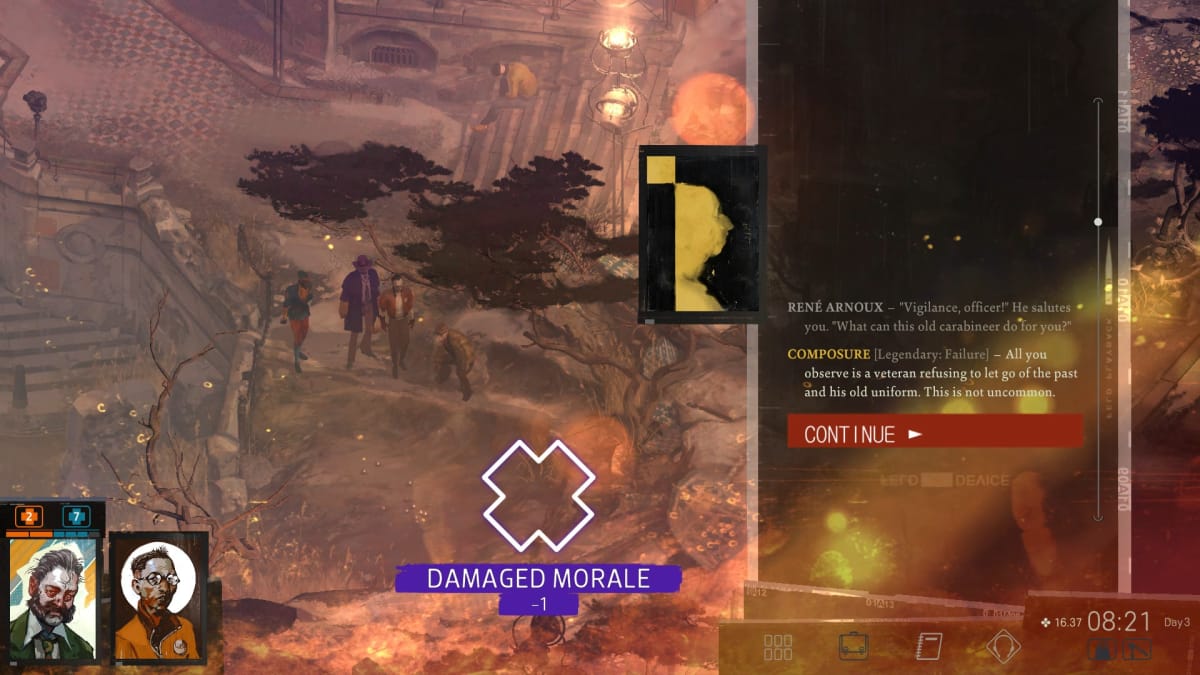
This wonderfully describes that ineffable appeal to Disco Elysium. It has this biting satire and irony but not so much as to feel alienating. There’s a sincerity to its humor, not just an excuse to throw punches but a reason to. When the product you produce is a part of yourself, this becomes abundantly clear.
“When you’re an artist starving for an audience, fighting for the right to participate in the medium—as we were before the PC release of Disco Elysium—you have ample opportunity for nihilism,” Hindpere said. “‘No one wants this anyway! People are stupid. I should have become a surgeon!’ That kind of thing.“
Much like how Harry explores himself, Disco Elysium became this for the team. “Writing Harry felt very freeing in a sense that he’s the fantasy of a trickster, someone who has let himself go so totally that this gives him a certain freedom to test boundaries and really dive into his emotions,” Hindpere said.
Composure
To believably make Harry a character who can explore the very boundary of the self, you must explore how that boundary has been crossed. Disco Elysium deals with the ugliness of humanity and what happens if you spend too long staring at that ugliness. When speaking about mistakes, Hindpere revealed that half of the team have learned to meditate, noting that is something Harry should perhaps learn. Using Harry as a front to explore your own emotions is as important to the writer as it is to the player, and this is something the team has taken in.
Self-questioning seems to lie at the very core of what the team at ZA/UM is doing. From the scratchy Rorschach test art to the anthemic, moody post-rock soundtrack provided by British Sea Power, it’s clear that the world is one based on introspection. Elysium is a growing world that Hindpere hinted may have future projects, but it’s clear the team has been focusing on making Disco Elysium the game they wanted it to be.
Disco Elysium: The Final Cut releases on March 30, and with it comes political vision quests and full VO. This introspection and change fundamentally represent something about the team. When I asked about mistakes, there almost felt like there was a sense of pride in them. Learning from bad behaviors is an important step to moving forward. After all, you can’t change for the better if you don’t know you need to in the first place.
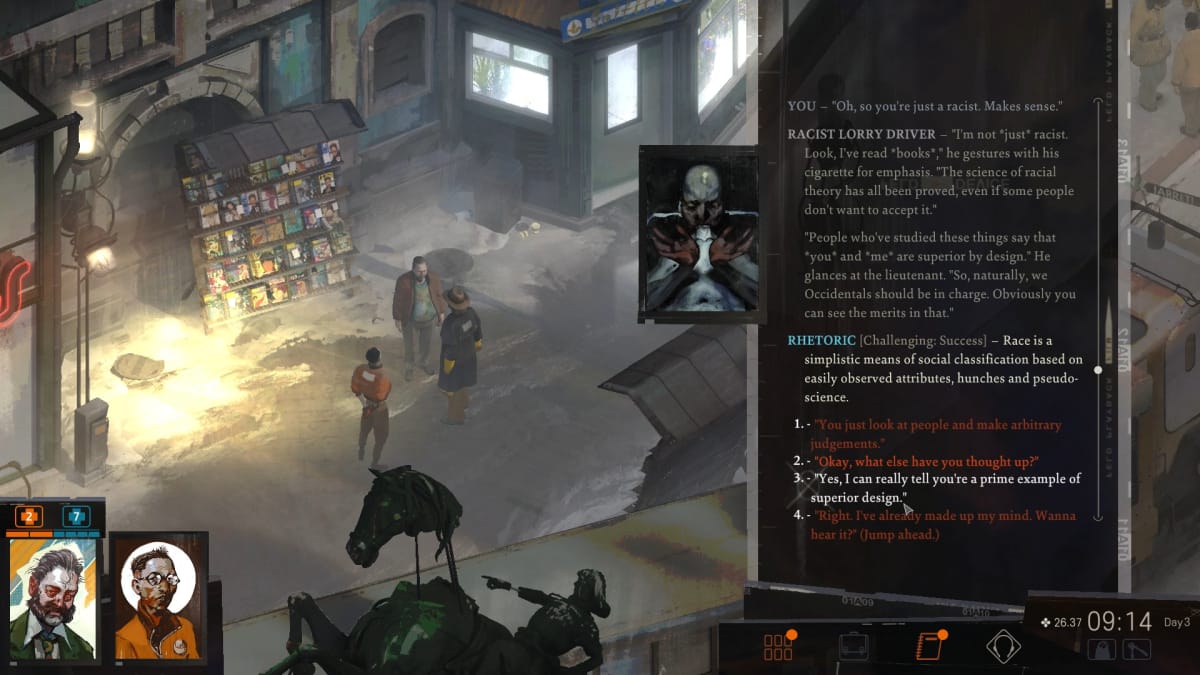
The last two years have represented a striking change for the team at ZA/UM. “Our bet on the masses paid off. They understand almost everything,” Hindpere said. “They’re smart as hell. They’re forgiving to the things we got wrong—and they really like the things we got right. Without misanthropy and doubt in the mix, the question becomes: what is our duty in this world that has proven to be nicer than our fears would have suspected?”
As you might be able to tell from this piece, I really liked the things that ZA/UM got right. Casting aside that misanthropy and nihilism is a huge step that the very public love of Disco Elysium has allowed the team to make. While the team has grown, so too has the game, and this is something I learned from my conversation with Hindpere. Throwing out misanthropy is a hard step but one that is so important.
When asked about the success of Disco Elysium and what it means to the team personally, Hindpere responded, “It’s brought a big change in how we see the world—and what’s possible in it.” Sometimes, casting aside a lot of irony for a little bit of sincerity is important for growth, and ZA/UM shows this well. Underneath those layers hides fallible, ever-changing human beings. Not only does this make you like the things it got right, but it also makes you understand and empathize with those that it didn’t.
Empathy
Disco Elysium is a game about acknowledging mistakes and dealing with them. As Harry, you can choose to wallow and crumble or rise above, you can drip every moment in satire or make a genuine connection. Part of what allows us to thrive and rise above is our ability to not only be aware of our mistakes but learn from them. In the wise word of Kim Kitsuragi, “Every school of thought and government has failed in this city, but I love it nonetheless. It belongs to me as much as it belongs to you.” Now that it’s out in the world, it belongs to me too.
Have a tip, or want to point out something we missed? Leave a Comment or e-mail us at tips@techraptor.net
